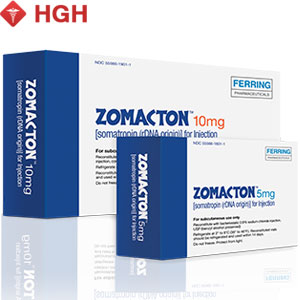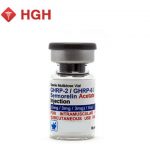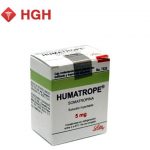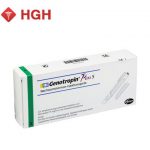
A fulfilling and active sex life is one of the cornerstones of women's health. However, many women suffer from low libido. Once causes like simple fatigue of illness have been ruled out, it's time to focus on the hormones responsible for low sex drive female hormones. In many cases, hormone replacement for low sex drive can help resolve the problem.
All About Sex Hormones
Progesterone, estrogen and testosterone are the primary sex hormones in both men and women, although in different amounts. In the female, estrogen and progesterone are present in much higher amounts, while in men, testosterone predominates. A balance among these hormones is necessary for optimum health and proper sexual functioning. Progesterone and estrogen levels rise and fall as part of the menstrual cycle and pregnancy.
Beginning with perimenopause – the period leading up to menopause in which women still have menstrual periods – progesterone naturally decreases. This results in excess estrogen, which can decrease libido. Once the woman enters menopause, estrogen also decreases. Vaginal dryness, loss of muscle tension in the vagina (vaginal atrophy), decreased sensitivity in the clitoris, mood swings, weight gain and fatigue are common.
Although women produce much less testosterone than men, the hormone heightens sexual response and orgasms. Low progesterone, high or low estrogen and low testosterone can all affect women's sexual functioning and libido. In addition to low libido, an imbalance of sex hormones can lead to other health problems.
Symptoms of Hormonal Imbalance
In addition to changes in libido, women often have a number of other symptoms when their sex hormones are out of balance. Menopause symptoms such as hot flashes and mood swings are typically well-known, but others may not be.
Perimenopause and menopause often result in disrupted sleep – partly because of hot flashes and night sweats. Fatigue is common, partly due to sleep disruption. Skin problems such as acne may surface during menopause. Bloating, fluid retention, and changes in bowel habits such as constipation may surface. Excess or thinning hair problems may occur. Weight gain often occurs, and the skin loses its resiliency and becomes thinner. Some of these are signs of normal aging, but others indicate a hormonal imbalance.
Nor are sex hormones the only issue. Thyroid function may become an issue for women as they age. Cortisol – the stress hormone – may contribute to sleep problems, cause sugar or carb cravings, result in unstable blood sugar or cause skin problems such as eczema.
Strategies to Increase Libido
Low libido can result from a combination of factors, and the treatment approach should take that into consideration. A multifaceted approach is often best. Begin with the basics – diet, exercise, stress relief and sleep. A poor diet means your body is not receiving the necessary fuel and nutrients to function properly. Ensure you eat adequate protein (women often eat too little protein when dieting to lose weight), plenty of fruits and vegetables, healthy fats like olive oil and some whole grains. Limit refined foods and sweets. Regular exercise – such as at least 30 minutes of brisk walking five days a week – is important for many aspects of health.
A good exercise program should include aerobics, strength training, flexibility and balance work. Meditation, support groups and behavioral changes can help relieve stress. Get at least seven to eight hours of sleep every night – this may mean cutting back on caffeine, alcohol and electronic devices, which can disturb sleep. While all of these strategies can help promote your overall health and hormone production, sometimes you need more help, such as hormone therapy for low sex drive.
When You Need Hormone Therapy
According to an article in Contemporary OB/GYN, as many as 43 percent of women report some kind of sexual dysfunction; decreased libido is the most common complaint. When hormone therapy is required, you should have a full work-up by your doctor. Although some kinds of hormones may be available over the counter, prescription hormones are the most effective in many cases.
Testosterone is available in different forms, but trans-dermal (through the skin) patches, gels and creams seem to be most effective for postmenopausal women. Oral therapy is also available. Estrogen and progesterone are also available in different forms, but local administration in the form of creams is often better tolerated by the patient.
Adult human growth hormone (HGH) deficiency may also affect your sex drive. Doctors have long known of a link between HGH deficiency and low sex drive in women. Although less common than an imbalance of sex hormones, HGH deficiency and low sex drive in women can result from conditions like pituitary tumors, head injury or other medical conditions. There are also other kinds of medical treatments that may target hormones or other biological processes.
Decreased libido can be a problem for many women, often beginning with perimenopause and continuing into the postmenopausal years. Growing older happens to everyone, but hormone dysfunction can cause symptoms that are not related to normal aging.If you suffer from decreased sex drive, ask your doctor about hormone supplementation. Wellness MGT offers a full range of hormonal products.




